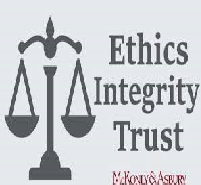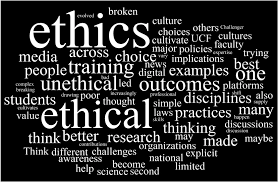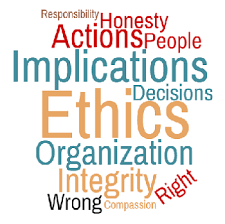
Ethics Research Paper
Ethics Research Paper
Order Instructions:
Please see upload.
SAMPLE ANSWER
QN1. Evaluate the parameters of ethical decision-making models as they apply to the recommended policy, and explain how the decision-making model selected justify the recommended corporate policy.
Answer:
In the recent times, there has been a realization of the crucial role of ethical decision making in business organizations. This follows the need to keep to the expectations of the society. In order to arrive at viable ethical decisions, it is crucial to consider parameters of models of ethical decision making. Any ethical decision will have aspects of clarity, evaluation, decision, implementation as well as monitoring and modification. These aspects form a basic decision making model which can effectively be applied in the policy of non-discrimination/equal employment opportunity and anti harassment. In view of this model, this policy involves clarifying on what needs to be decided. For the decision to be viable, it must be addressing a realistic issue that is relevant and of priority. There is need to evaluate the condition and separate facts from mere beliefs. This is because; personal intuitions that are not based on reality could lead to wrong decisions and therefore, poor policies. It is crucial to arrive at a decision when facts have been established. In the face of this policy, the realization that there is discrimination in the workplace justifies the arrival at the policy of non-discrimination. The next step is implementation of the policy whereby, care must be taken to ensure that, the right environment for implementation of the policy has been cultivated. In view of this model, there is need to carry out effective monitoring and modification when necessary. These efforts enable positive results of the policy
QN 2. Assess how the recommended corporate policy is socially responsible, and justify the responsibility.
Answer:
The corporate policy of non discrimination and equal employment opportunity is socially justified. This view emanates from the realization of orientation of society towards fairness for all people. In a justified society, everyone should get an equal opportunity regardless of the various differences that people have, for instance, gender. When there are efforts in an organization to arrive at equality in the undertakings, it is socially responsible move. In the wake of realization that women have been discriminated for a long time, especially in the work place, policies towards provision of equal opportunities for all genders is seen as being socially responsible. The effects of such policies would be felt not just in the work place, but deep in the society. This follows the provision of chances to more women and other discriminated groups of individuals. When they get the opportunities to work in the organization, following implementation of this policy; their families and the society at large benefit.
QN3. Recommend a corporate policy for resolving the issue, and provide examples of how the comprehensive nature of the corporate policy covers the major aspects of the issue.
Answer:
In order to solve the issue of gender discrimination, touching on payment of less remuneration to women employees despite equal productivity with the male counterparts, there is need to adopt the policy of non discrimination and equal employment opportunity. Adoption of the policy of non discrimination and equal employment opportunity provide a comprehensive focal point of resolving the issue of gender discrimination in the organization. This is because; the policy will subject the people perpetrating such injustices to being responsible to justify their deeds. If they persist, then, the policy offers grounds for termination of their continued working with the organization. With full implementation of this policy, there would be provision of equal employment opportunity in the organization despite the differences of gender. There would also be elimination of harassment especially on basis of gender difference. If anyone engages in harassment of an employee due to their gender, then, the policy provides grounds for such a person to justify their deeds with high possibilities of having their jobs terminated. With adoption of this policy, there would be feeling of safety for the employees of both genders.
QN 4. Support corporate policy recommendation for business ethics policies and standards with well-reasoned analysis and specific examples, and cite statistics based on cited references that also support the recommendation.
Answer:
From observation of what happens in most of workplaces and the available, there is need to have corporate policy geared towards reduction f discrimination especially against women. Picault (2013) asserts that there have been models that point to support that men and women have different reservation wages. It is on basis of such models that there has been wide discrimination of women in workplace. These orientations come from data that is collected by panel surveys concerned with discrimination at workplace. For instance, in Europe, data covering the final years of 1990s shoe that reservation wages for women are lower than those of men. This is not a unique case but it is a reflection of the condition in many areas. This justifies the need to have corporate policies to shield women from discrimination. There have been efforts, not only in organizations but in government laws that seek to protect women from gender discrimination in the workplace. For instance, statistics show that the US has been in the fore front in enacting policies for protection of women against gender discrimination in the work place. Discrimination against women in many workplaces is evidenced by myriads of available. This is as shown in the data below which point to more male favors at workplace in different continents
. Higher number of men of all ages at workplace shows that there is discrimination of women hiring and recruitment. For example, in America there is difference of about 20% of the number of male workers compared to women.
QN 5. Recommend a strategy for communicating the policy to the organization in a manner that meets the needs of the audience, and explain and justify how the communication meets the needs of the audience.
Answer:
When a policy has been decided upon, it is crucial to adopt a communication strategy. This view follows the realization that; how the policy is communicated can make the difference how it will be received. To have effective communication, it is crucial that the employees get memos notifying them of the need to embrace such a policy. At this stage, the employees could be given an opportunity to provide their views concerning the same and what more they would like to be added. After consideration of their views, in a general meeting, the facets of the policy should be discussed. The consequences of breaking such policies are made clear. This mode of communication meets the needs of the audience in the sense that; they are first provided with an opportunity to air their views. Making the final communication of the policy in an open meeting makes it clear that the policy is applicable to everyone. The initial memos serve to shoe the official nature of the policy and to make the audience aware of the policy before the final talk over it is done.
QN 6. Describes potential limitations of the policy and strategies for monitoring and compliance, and explain the repercussions of not complying with the corporate policy.
Answer:
As much as this policy appears to be perfect, there are some observed limitations to it. For instance, the female employees could take advantage of the policy to falsely accuse male employees of mistreating them. This could lead to unfair punishment of the male employees and even losing of their jobs unjustifiably. There could also be laxity among the women such that they do not do their work as expected because, if followed up by the male supervisors, they accuse them of harassing them on basis of their gender. In order to have success with the implementation of the policy, it is crucial that there are stipulated strategies for monitoring and compliance. The strategy for monitoring would involve surveying the turnover of women employees in the subsequent years. With compliance with the policy, there would be employment of more females in the different posts. There would also be monitoring of complaints related to harassment based on gender. To ensure compliance to the policy it is always crucial to stipulate the repercussions for not complying. Such repercussions would include facing disciplinary panel whereby one would have to explain the deeds against the policy. With persistent incompliance, there would be termination of job. The harsh repercussions are meant to ensure that there is full compliance to the policy in a bid to stick to ethics.
References
Everly, B. A., & Schwarz, J. L. (2015). Predictors of the Adoption of LGBT-Friendly HR Policies. Human Resource Management, 54(2), 367-384. doi:10.1002/hrm.21622
Picault, J. (2013). Unionization and Labour-market Discrimination: A Closer Look at Non-unionized Workers. LABOUR: Review Of Labour Economics & Industrial Relations, 27(3), 272-287. doi:10.1111/labr.120
We can write this or a similar paper for you! Simply fill the order form!












